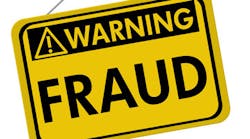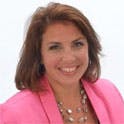Fighting the fraud tidal wave in dental practices
Sadly, fraudulent activity happens just as often in dental offices across America. It happened in my office, and I’m the one who discovered it. It was so traumatic for all of us that it became my personal mission to find a way to keep fraud from happening in as many dental offices as I can.
Although there is no foolproof method to prevent embezzlement, there are steps that can be taken to deter fraudulent activity. First and foremost, if your gut tells you that something doesn’t feel right, listen to your gut. Contact me immediately and I’ll help you check it out. Think of fraud as tooth decay. Time will not heal it and it will only get worse.
RELATED ARTICLES:
How is employee fraud like gingivitis?
What dental practices should know to avoid fraud and uphold ethical standards
Second, if you as owner want to counteract fraud, you need to start from the top. Create a Standard of Conduct for the practice team, and then be the example of that standard. This standard should include everything from insurance, to scheduling, to presenting treatment, and of course, how to handld all monies. If the doctor takes money out of petty cash for personal use, this is the example being set as acceptable. If the doctor allows a buildup to be charged as a filling because this helps the patient get paid through insurance, that doctor is setting the standard of conduct.
If an employee perceives that “working the system” or skirting the rules is acceptable, then the employer is allowing fraudulent activity. Cheating is cheating and should never be tolerated. Cheating in any way is not acceptable and anyone caught doing anything against the standards should suffer automatic consequences.
Finally, know who you’re hiring by checking references. We often see this process delegated to a team member in the office. But our rule of thumb is, whoever signs the checks calls all references and speaks to the person who signed the checks at the previous office. We think it’s important to make it a habit to talk employer to employer.
There are a couple of behavioral habits that are well documented as good practices, and I believe these should be followed as well. They are: 1) everyone in the office must take their vacation time out of the office, 2) whoever balances the daily deposit should not be the person to take the deposit to the bank, and 3) the office should make it a priority to reconcile bank and credit card statements monthly.
Another step you might want to consider is a program we at Global Team Solutions have created called Risk Analysis & Monitoring (RAM). This program begins with a review of past trends to understand the systems in place with the office. The analysis includes a close look into the inner workings of the practice’s financial habits. This evaluation typically draws out inconsistencies and misappropriations. Following the initial analysis, a written report containing expert recommendations and training where needed is shared with the practice owner. Routine monitoring of the practice’s systems follows throughout the year, again with written reports of all findings and recommendations.
It’s helpful for practice owners to know that RAM is watching, and it also helps those responsible for the finances of the practice to know they’re following the best practices rule. If you’d like to add this important step to your fight against the fraud tidal wave, contact me at [email protected] so we can discuss how to strengthen your arsenal and avoid becoming a statistic.
Unfortunately, fraud is as prevalent in dental offices as it is in the rest of the world. By taking actions in prevention and enlisting some outside eyes, your office can move closer to making sure that your money is going into the bank and not into someone else’s pocket.

